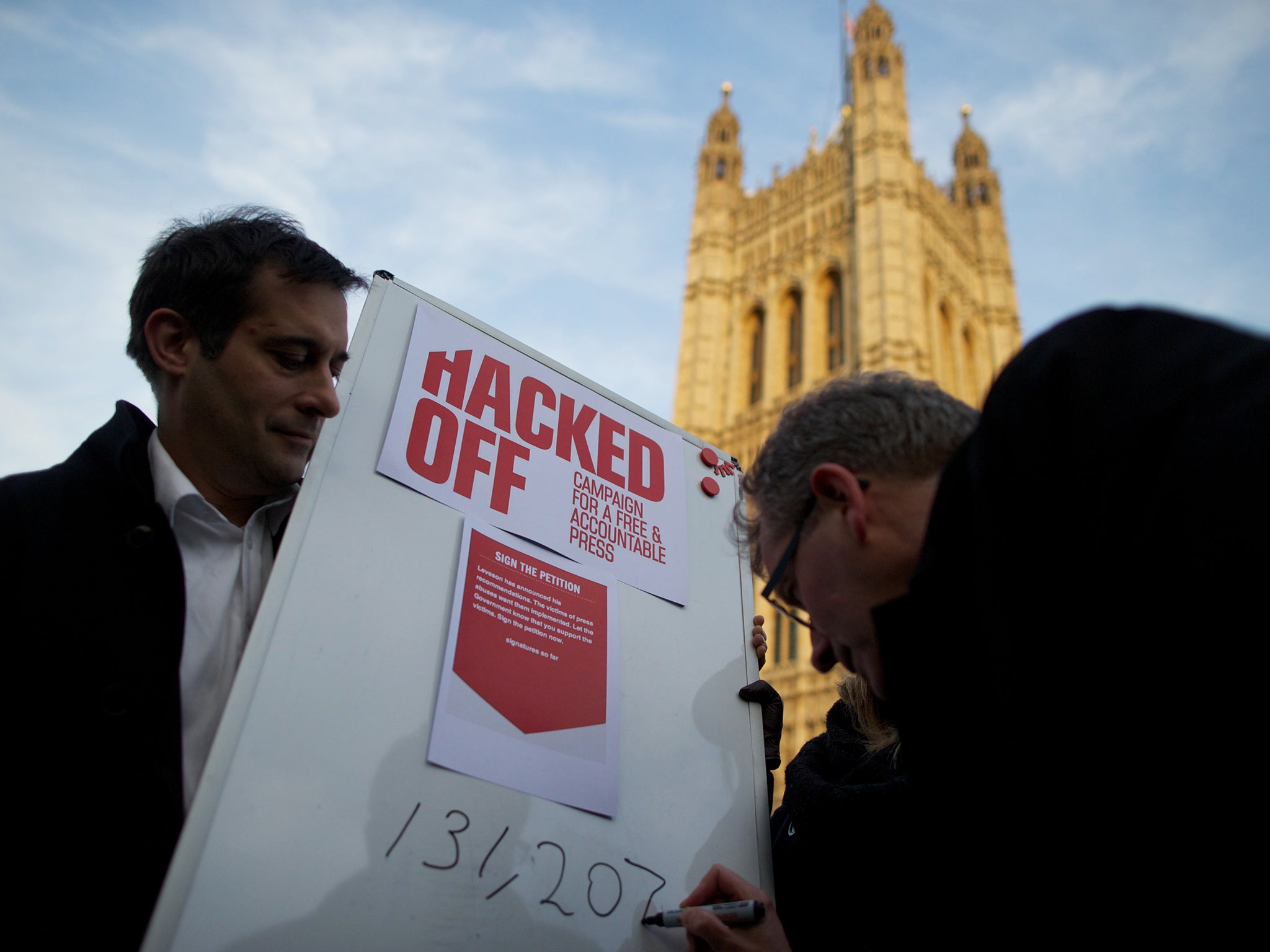Section 40: Will the press be forced to pay the costs in court cases - even if they win?
The Big Question: Are press reforms needed in the wake of the phone hacking scandal, or will they prove financially ruinous to some outlets?

Why are we asking this now?
A consultation on enacting reforms that would force the press to pay the costs in court cases even if they win closes on Tuesday
What is the Government consulting on?
After the Leveson Inquiry into press ethics, a cross-party agreement led to changes in the law including provisions that would mean newspapers paying their opponents' legal costs in libel and privacy cases, even if they win, unless they sign up to a recognised regulator.
It is also assessing whether the second part of the Leveson probe - which would focus on alleged wrongdoing between the press and police - should go ahead.
If the costs reforms are already in law, why is there a consultation?
The provisions are covered by Section 40 of the Crime and Courts Act 2013 but no date was set for them to come into force.
If newspapers can avoid paying costs in cases they win by signing up to a recognised regulator, why are the measures so controversial?
Section 40 is being widely opposed by news organisations, including the Press Association, the national news agency of the UK and Ireland. The agency's editor-in-chief Pete Clifton said it would have a "seriously chilling effect on freedom of expression of the national, regional and local media".
Under the reforms introduced after the Leveson Report, press regulators can be granted recognised status by the Press Recognition Panel (PRP), which was set up under a Royal Charter. Newspapers warn that this amounts to "state-sponsored" regulation and flies in the face of a free press.
Many - but not all - publications have joined the rival Independent Press Standards Organisation (Ipso), which has made clear from the outset that it would not seek recognition by the PRP.
The only officially-recognised UK press regulator is Impress, which is indirectly funded by high profile figures who have campaigned for press reform.
How is Impress funded?
The Independent Press Regulation Trust agreed to a £3.8 million four-year funding deal for the organisation.
It says the cash has been guaranteed by the Alexander Mosley Charitable Trust, which was set up by Max Mosley. The former motor racing boss was a victim of a newspaper sting involving images of him at a sex party.
Impress has also received a "generous" donation from writer JK Rowling, who has called for press reforms.
What impact would enacting Section 40 have?
Newspapers warn the measure would particularly harm investigative journalism. Critics say the measure is "draconian" and would leave struggling papers, particularly in the regional press, fearing financial ruin.
The Sunday Times warned its expose on drugs cheat cyclist Lance Armstrong would not have been published if Section 40 had been in place.
But Hacked Off say the measure protects ordinary people who would not be able to afford to take on newspapers in court. The press reform campaign says newspapers can avoid paying costs by joining Impress, which will provide a low-cost arbitration scheme to settle disputes.
Why is the consultation looking at whether the second part of the Leveson Inquiry should go ahead?
The Government says that as the last relevant criminal cases linked to the inquiry are in the final stages it is the right time to "consider whether the police and press have adequately reformed to ensure phone hacking and other illegal and improper activity could not happen again today".
Former culture secretary John Whittingdale says Sir Brian Leveson does not want to chair the second phase but the chairman has not publicly responded.
Join our commenting forum
Join thought-provoking conversations, follow other Independent readers and see their replies
Comments
Bookmark popover
Removed from bookmarks